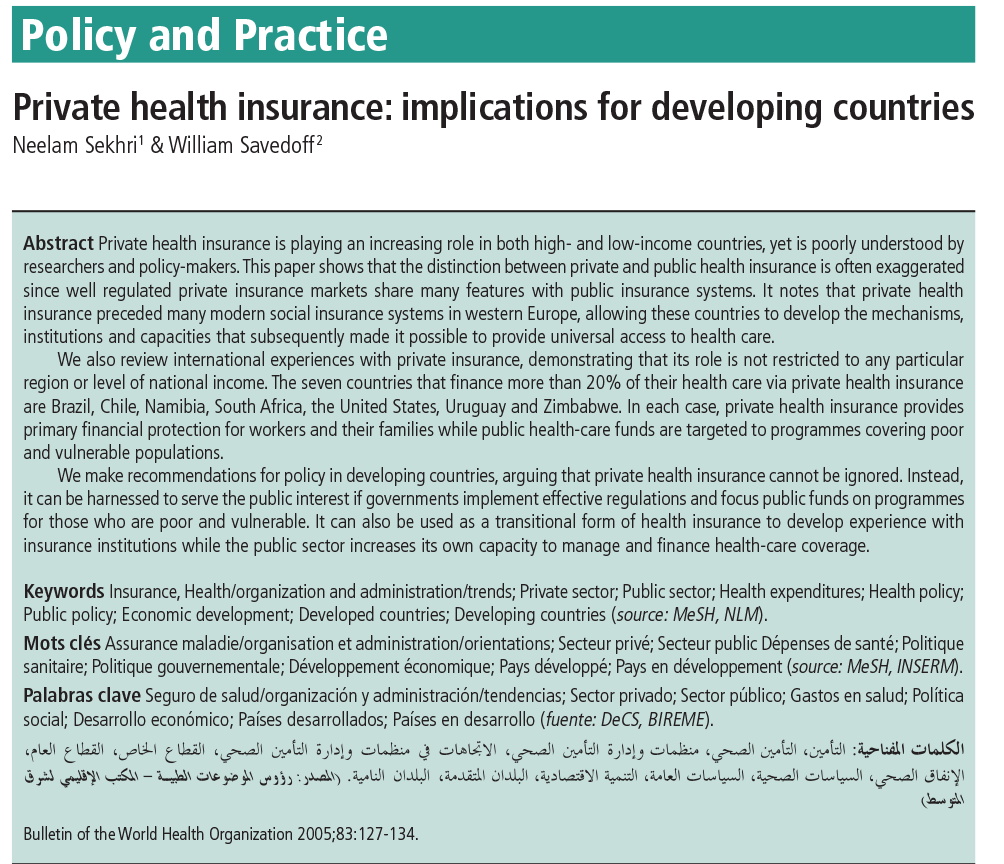
Resource Library
Private Health Insurance: Implications for Developing Countries
Private health insurance is playing an increasing role in both high- and low-income countries, yet is poorly understood by researchers and policy-makers. This paper shows that the distinction between private and public health insurance is often exaggerated since well regulated private insurance markets share many features with public insurance systems. It notes that private health insurance preceded many modern social insurance systems in western Europe, allowing these countries to develop the mechanisms, institutions and capacities that subsequently made it possible to provide universal access to health care. We also review international experiences with private insurance, demonstrating that its role is not restricted to any particular region or level of national income. The seven countries that finance more than 20% of their health care via private health insurance are Brazil, Chile, Namibia, South Africa, the United States, Uruguay and Zimbabwe. In each case, private health insurance provides primary financial protection for workers and their families while public health-care funds are targeted to programmes covering poor and vulnerable populations. We make recommendations for policy in developing countries, arguing that private health insurance cannot be ignored. Instead, it can be harnessed to serve the public interest if governments implement effective regulations and focus public funds on programmes for those who are poor and vulnerable. It can also be used as a transitional form of health insurance to develop experience with insurance institutions while the public sector increases its own capacity to manage and finance health-care coverage.
Resource Type : Brief
Country : Brazil, Namibia, South Africa, United States, Zambia
Year : 2005-02-01T15:45:00
Language : English
Project : SHOPS


